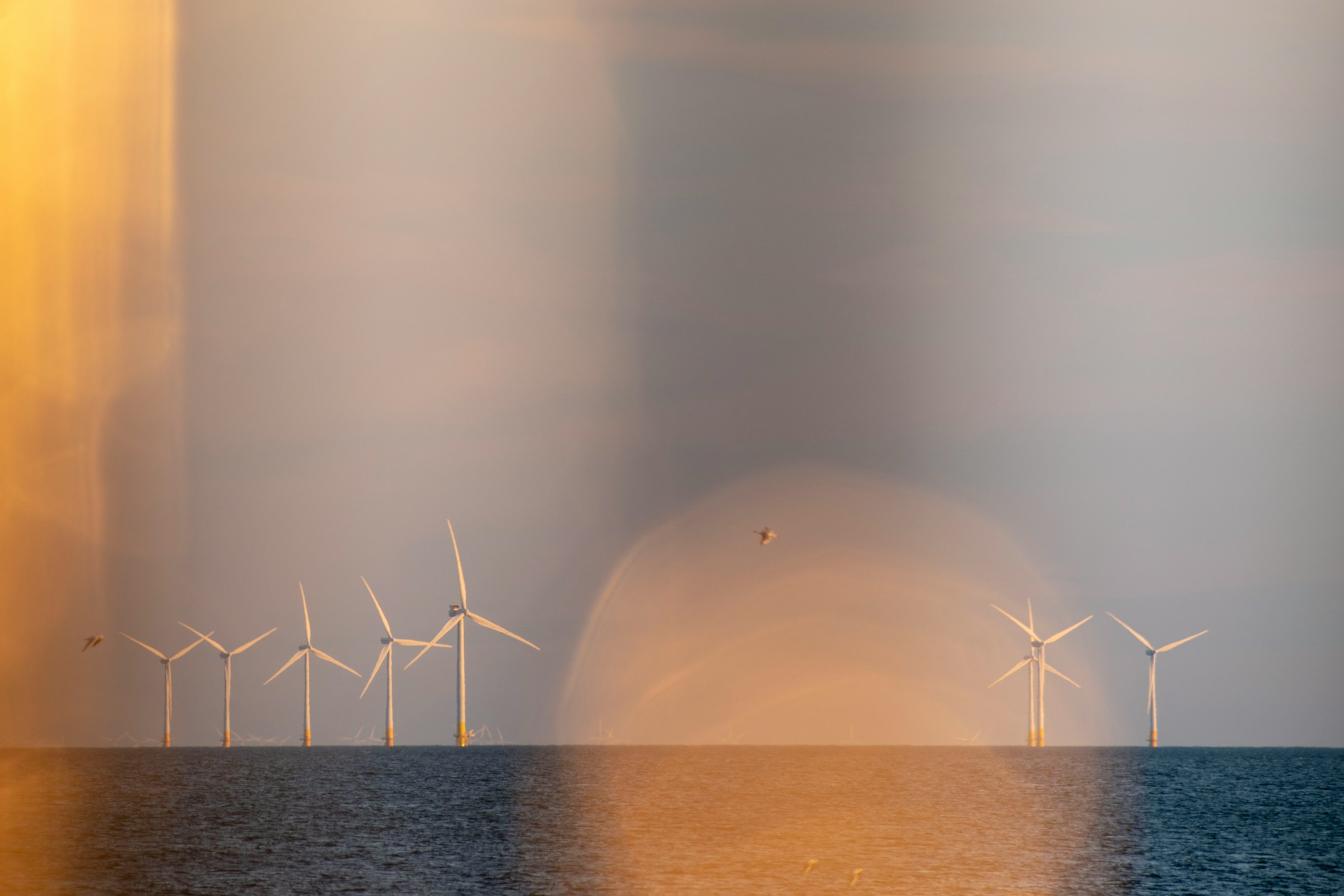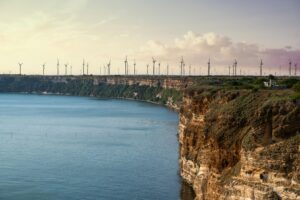Read the paper “Setting the scene for an interconnected, renewable Mediterranean energy system”
Today, the Mediterranean region’s capacity is 90 GW for solar PV and 82 GW for wind. However, the solar and wind potential is estimated at more than 3 TW, meaning that the development of renewables falls short of realising their full potential.
Far beyond contributing to climate change mitigation, the deployment of renewable energy can enormously benefit local populations and economies, creating added value for societies. Renewables offer an opportunity to tackle the diverse but common challenges faced by countries across the region and relaunch trust in international cooperation. An inclusive energy transition pathway for the region is critical to future-proofing the region against the worst impacts of climate change, creating economic resilience and shielding fossil fuels-producing countries from the volatility of international fossil fuels’ markets, providing a stable energy supply to power a competitive industrial regional ecosystem while mitigating geopolitical tensions.
Currently, Spain has the highest installed capacity of PV power (27 GW, adding more than 10 GW only in 2021-2022), followed by Italy and France (25 GW and 18 GW, respectively). Spain also has the highest installed capacity of wind power (30 GW, adding 3 GW in 2021-2022), followed by France (21 GW) and Italy (11.8 GW). Up to today, despite an encouraging annual growth rate in the last years, North African countries have much lower installed capacity, contributing with less than 12 GW of total renewable capacity.
The uneven development of renewables across the two shores of the Mediterranean has largely resulted from supporting mechanisms on the northern shore. Over the last two decades, renewables in Europe have been supported by comprehensive policies. Financial incentives evolved progressively, from initial feed-in tariffs to auction systems to enhance competition and limit consumer costs. The European Green Deal has provided further leverage for the expansion of renewables in Southern European countries and has raised national climate and energy targets.
The expansion of renewable energy in Southern Mediterranean countries has been slower. From a market structure point of view, although the power sectors in many countries were traditionally characterized by a high degree of vertical integration and state control, a gradual but slow transition towards competitive power market status is observed through unbundling vertically integrated power utilities. Even in the Southern shore, the current trends in renewable energy policies witness a shift from feed-in-tariff towards auctions and tender mechanisms.
Therefore, as renewables are nowadays competitive without supporting mechanisms on both shores of the Mediterranean Basin, opportunities for energy market integration between the two shores open.
Energy market integration has long been recognised for offering numerous benefits to energy systems and economies of participating countries: enhanced energy security and power system reliability, supply mix diversification, lower power system costs, and, therefore, lower consumer prices. With increasingly ambitious climate mitigation objectives at the global level, the climate benefits become the key rationale for market integration at the regional level, as it accelerates the scale up of renewable energy through regional collaboration.
Energy market integration should be based on the understanding of:
- The scale of the security threat posed by climate inaction in the Mediterranean region.
- The transition away from fossil fuels as a matter of mutual energy security and just transition.
- The economic opportunities offered by the clean energy transition to regional economies.
- The shared advantages of integrating the region’s energy systems.
This research paper aims to set the scene for an interconnected, renewable Mediterranean energy system by providing the region’s current energy picture.
An ambitious scenario to underpin future regional stability declines the COP28 Pledge, committing to triple the world’s installed renewable energy generation, at the regional level and describes the possible benefits of installing 1 TW of renewable energy capacity by 2030.
According to this scenario, the potential investments are ~120 billion $ per year, in light of the recent decline in solar and wind technology costs, especially in North Africa, and the opportunities for new jobs around 3 million in the sole supply chain for solar and wind industries.
An interconnected, renewable Mediterranean region can also unlock opportunities for industry electrification, substitution of fossil fuels in electricity production, electrification of household and service energy consumption, and transport electrification.
According to the International Energy Agency, the energy transition also provides an opportunity for North African countries to establish or expand manufacturing of clean technologies and near-zero emissions materials, by already offering favorable business enabling factors for solar PV manufacturing, EV and battery, green iron and steel and ammonia.
However, a comprehensive regional vision is needed to increase economic resilience and boost competitiveness in a low carbon world. A failed, incomplete or uncoordinated energy transition in the Mediterranean region bears, firstly and foremost, social and economic costs for Mediterranean countries and the resilience of their societies. In an ever-increasingly competitive global economy that sees rising protectionism policies and the segmentation of traditional fossil fuels markets, the future of decarbonisation for countries in the Mediterranean region is anchored in both their geographical proximity and the history of Mediterranean relations. Moreover, the structural and progressive decline in European gas demand forecasts jeopardises the stability of traditional North African producer countries, affecting their revenues. On the other side, delaying the needed investments and policy reforms to implement more far-sighted industrialisation policies in the framework of global decarbonisation might lead to the loss of the comparative advantage that North African countries might have by leveraging regional decarbonisation.
Endorsing the target of tripling renewable capacity in the region to reach 1 TW would provide the political framing for current market and energy trends. The upcoming NDC update cycle towards COP30 provides a window of opportunity for countries across the Mediterranean region to set higher ambitions and kickstart the needed policy changes.
A new renewable-based, region-wide approach towards the transformation to a clean, flexible, reliable and secure Mediterranean energy system should promote renewable energy production, electrification of end-use consumption, storage technologies and cross-border electricity exchanges rather than a 360° technological neutrality approach that risks further delaying the energy transition.
The region must have a clear and cohesive financial strategy to unlock investments, combining long-term government policy commitments with strong governance frameworks. Public institutions must take the lead, creating the right incentives for private investment while ensuring financial flows align with the Paris Agreement goals.
The role of National and Regional Development Banks, Multilateral Development Banks, and Export Credit Agencies will be pivotal in this process. Close collaboration between domestic and regional financial actors can provide the necessary financial tools, from public-private partnerships to concessional loans or risk mitigation mechanisms to innovative instruments for foreign exchange risks, to incentivize private investments in renewable energy projects.
Ultimately, achieving a net-zero transition in the Mediterranean depends on effective collaboration between the public and private sectors. Public investment will need to be structured to reduce risks for private investors, leveraging public resources to catalyze the vast amounts of private capital required to meet the region’s decarbonization goals. By creating an enabling environment where both can work together, the region can unlock the climate finance needed to transform its energy landscape, meeting both regional needs and global climate targets.
If successfully undertaken, the creation of an interconnected Mediterranean system across the two shores of the Mediterranean Basin could play an essential role in bridging the world’s largest market economy – the European Union – to the world’s fastest growing population – Africa – linking the Mediterranean region to the sub-Saharan power pools in West Africa (West African Power Pool) and East Africa (East African Power Pool), accelerating Sub-Saharan Africa’s decarbonisation.
However, despite scientific evidence for an acceleration of climate action and notwithstanding the positive effects of the energy transition, the European energy diplomacy in response to the Russian invasion of Ukraine in February 2022 risks clashing with European climate targets. Such pursuit of energy security in the exclusive terms of security of gas supplies sends contradicting signals that are not conducive to building the political conditions for a fossil-to-clean shift in the Mediterranean region. Accelerating the clean energy transition represents, first and foremost, an existential matter of regional security and the condition for future prosperity. Only the diversification of renewable energy supply chains can minimise geopolitical risks.
Read the research paper
Photo by Ian Simpson








